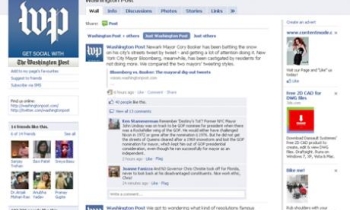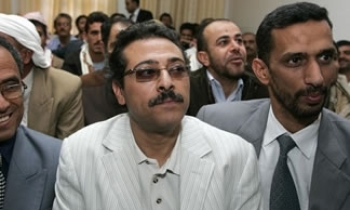Bangladesh's first and only 24-hour news channel has gone off air days after broadcasting last month’s student-led anti-government riots.
The Bangladesh Telecommunications Regulatory Commission told the CSB News station it would be permanently closed if it fails to satisfactorily explain its registration status in seven days, said Hummam Quader Chowdhury, director of Focus Mult, the company that owns the private TV channel, according to Associated Press (AP).

The closure came abruptly Thursday at around 6.30 pm, New Age newspaper reported Friday, according to Indo-Asian News Service (IANS). The move is seen as a possible fallout of its telecasts of the August 20-23 demonstrations and violent clashes in Dhaka University and other campuses across the country, demanding an end to emergency rule.
The Ministry of Information said in a statement that it found that station officials were guilty of fraud in obtaining its frequency approval. Government officials could not immediately be reached for comment.
"It's a surprise decision for us," said Niaz Morshed, the channel's editorial head. "We didn't do anything wrong, I don't know why this has happened."
"Why deprive viewers of a source of independent news on the basis of the suspicion of a forged document?" asked Reporters sans Frontières (RSF). "But this decision could be linked to broadcasts of demonstrations, despite requests from the authorities not to." The Daily Star has reported that some members of the government accuse the channel of inciting students to demonstrate in Dhaka.
"CSB News must be allowed to resume broadcasting while awaiting the regularisation of its final permission," RSF said. "If ultimately the channel is suspended, which we fear will be the case, it will threaten all the interim government’s efforts to allow greater freedom to the electronic media".
The station began broadcasting on March 26 and earned praise for its coverage of a series of major news events, including the arrest of two former prime ministers as part of a massive crackdown against corruption.

Last month, the government warned the station that it was "breaching emergency rules," but did not clearly say which rules had been broken. The information ministry said the channel had broadcast "provocative news, video footage and talk shows" that criticised the government. "The government will take action if it continues to do so," Mainul Hosein, who oversees the information ministry, told reporters in August.
The government had ordered all television channels not to broadcast any political talk shows, which have become popular in Bangladesh. Currently, all political gatherings and street protests are banned, and the emergency rules have curbed many basic rights.
The interim government came to power after President Iajuddin Ahmed announced a state of emergency in mid-January to quell months of political violence over electoral reforms. At least 30 people were killed and scores injured in the violence.
The government has arrested former Prime Ministers Khaleda Zia and Sheikh Hasina on charges of corruption. They are now in jail pending trial.
Meanwhile, the Asian Legal Resource Centre (ALRC) said in a statement to the sixth session of the UN Human Rights Council, "The officers of the armed forces monitor television news bulletins and newspapers and threaten and intimidate editors by phone or in person.
"Television channels have stopped broadcasting many of their issue-based discussions and talk show programmes and newspapers are also engaged in heavy self-censorship. The media now only publish items that the government will like." A large number of grassroots level newspapers have reportedly been ordered to close indefinitely, said ALRC.









